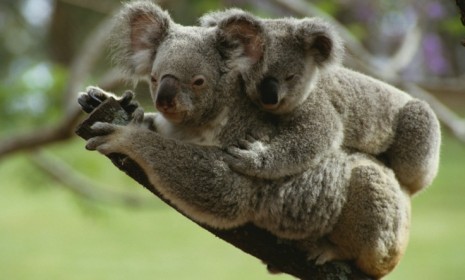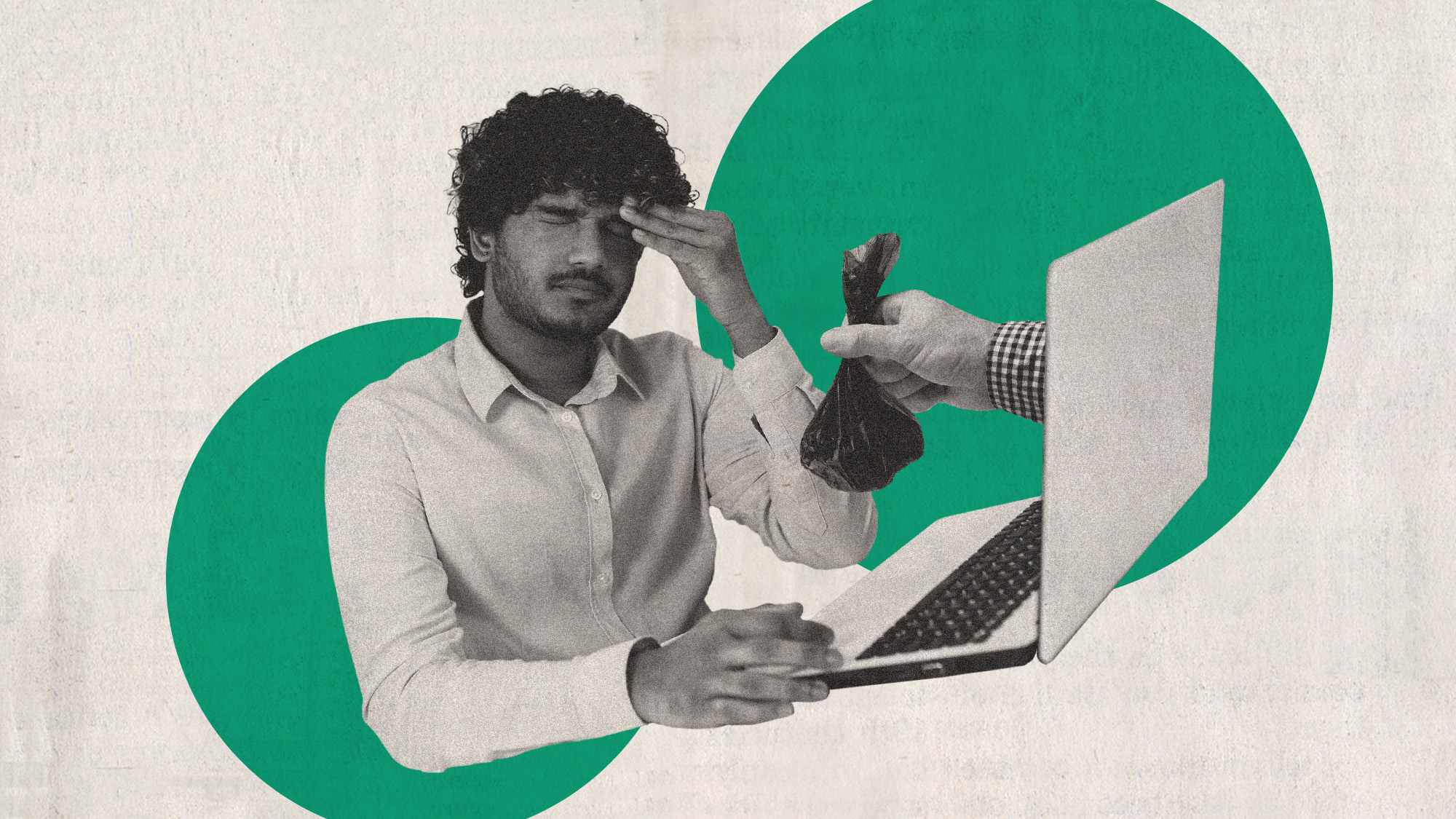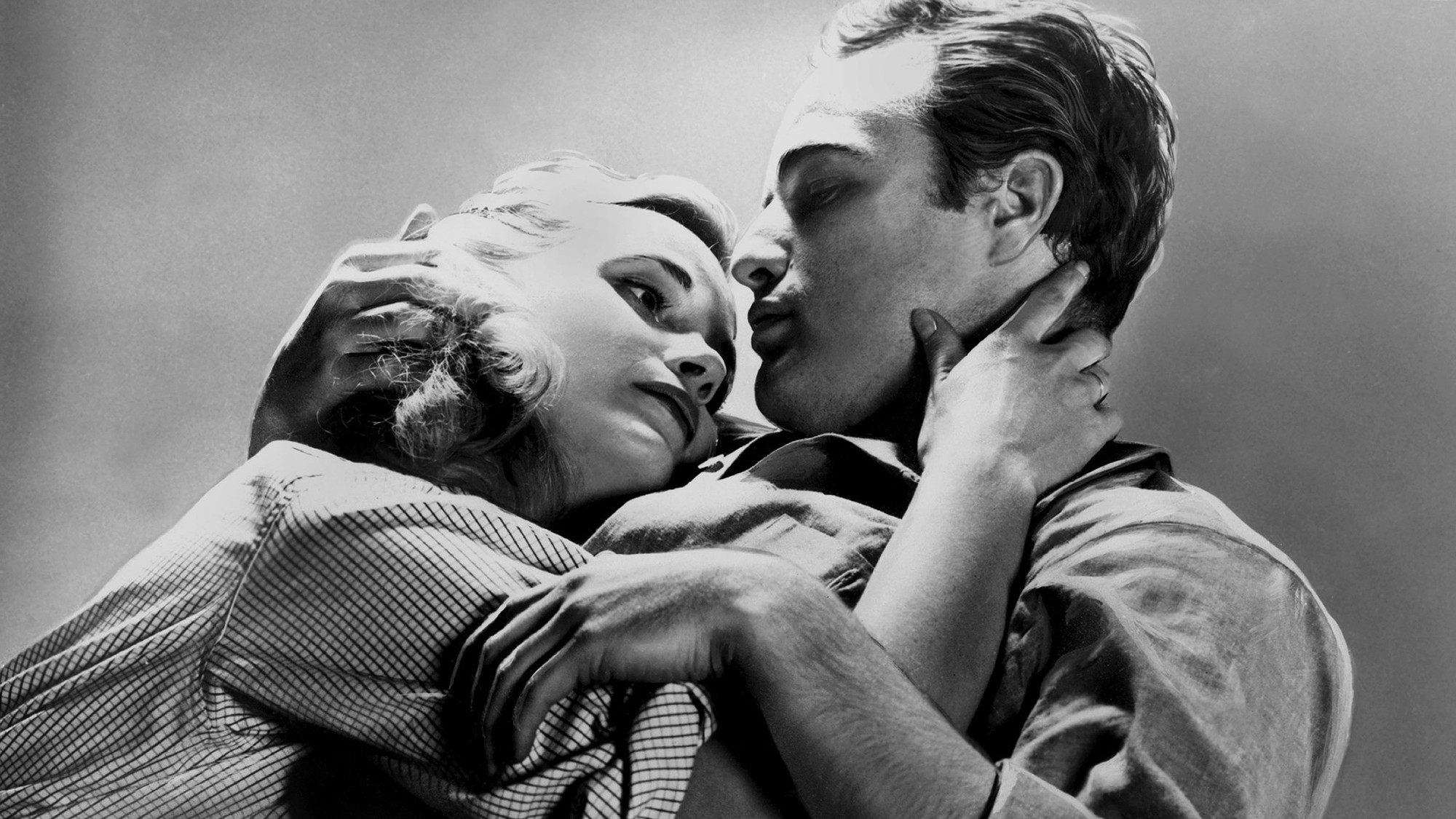Koalas: An endangered species?
People often assume there's a koala in every gum tree in Australia, but disease and habitat destruction are imperiling the lovable marsupials

Koalas are famously cute and cuddly, but are they also doomed? Experts have warned Australian lawmakers that the population of tree-dwelling marsupials is plummeting, with no sign of relief. Here, a brief guide to the multitude of factors that might be pushing koalas close to extinction:
How many koalas are left?
Their numbers have dropped by as much as 95 percent since the 1990s. There are as few as 43,000 koalas — and almost certainly no more than 100,000 — left in the wild on the Australian mainland. The population in southeast Queensland alone has plummeted from 25,000 to 4,000 in the last decade. "This species is supposed to be common, says University of Queensland nature conservationist Christine Hosking, as quoted in Britain's Independent, "yet it's slipping to extinction under our noses."
The Week
Escape your echo chamber. Get the facts behind the news, plus analysis from multiple perspectives.

Sign up for The Week's Free Newsletters
From our morning news briefing to a weekly Good News Newsletter, get the best of The Week delivered directly to your inbox.
From our morning news briefing to a weekly Good News Newsletter, get the best of The Week delivered directly to your inbox.
Why are these cuddly creatures in such trouble?
In Queensland, a big problem is development, which has destroyed bushland where koalas thrive. And as housing pushes into what used to be rural Koala habitat, the animals face the possibility of attacks by feral or domestic dogs. Some also get run over by cars. Climate change is worrisome, too. Koalas aren't built to cope with droughts and heatwaves, which appear to be getting more common in southern Australia. And rising carbon dioxide in the atmosphere is reducing the nutrient content of eucalyptus leaves, the koala's sole food source, reports Britain's Independent.
Any other threats to koalas?
Disease is also taking a toll. With their numbers dwindling, in-breeding has become more common in some koala populations, and that can magnify each new generation's susceptibility to disabilities and disease, reports Australia's The Age. To make matters worse, koalas have been struck by an HIV-type retrovirus, and chlamydia, which renders half the koala population infertile.
A free daily email with the biggest news stories of the day – and the best features from TheWeek.com
This sounds really bad. What will the future bring?
A 2009 report warned that if left alone, the spread of the retrovirus alone could propel koalas to extinction within 30 years. Allowing that to happen, says Australian Greens party leader Bob Brown, would be as disastrous as letting China's pandas disappear. And don't forget: Koalas bring Australia an estimated $1 billion a year in tourism income.
Can anything save the koala?
That's hard to say. Planting trees for food and shelter will help. Another first step, conservationists say, is to acknowledge the problem by listing koalas as endangered, which would make it easier to protect remaining habitat, and raise money for research on a chlamydia vaccine. But the country's Sustainability Ministry has twice rejected that plan. "We can't afford to wait until the population is down to 10,000 before we do something," says University of Queensland landscape ecologist Clive McAlpine, "because by then it will be too late."
Sources: Telegraph, Independent, The Age, Earth Talk
-
 AI workslop is muddying the American workplace
AI workslop is muddying the American workplaceThe explainer Using AI may create more work for others
-
 Japan poised to get first woman prime minister
Japan poised to get first woman prime ministerSpeed Read The ruling Liberal Democratic Party elected former Economic Security Minister Sanae Takaichi
-
 The 5 best mob movies of all time
The 5 best mob movies of all timeThe Week Recommends If you don’t like a good gangster flick, just fuhgeddaboudit